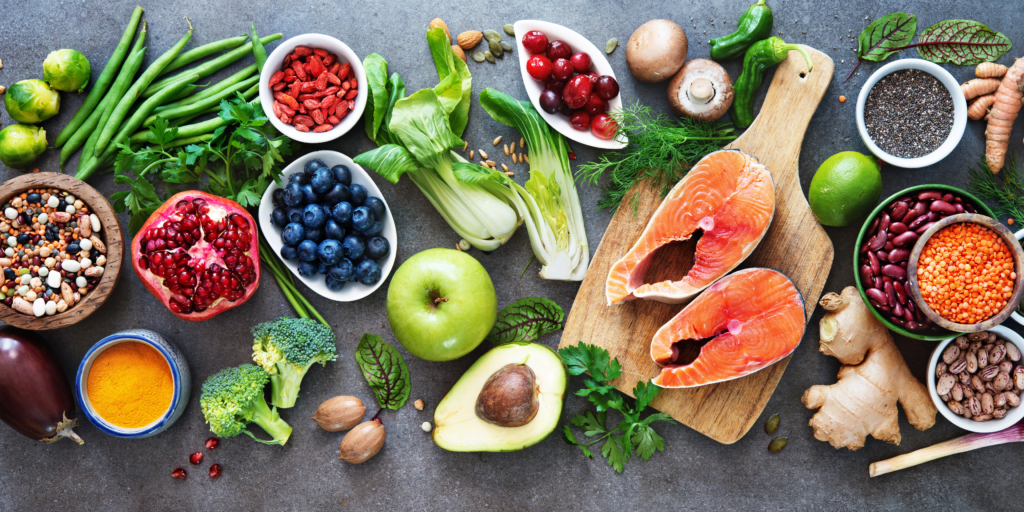Proper nutrition, according to the World Health Organization, is vital to health and development. It is associated with better infant, child, and maternal health, safer pregnancy and childbirth, a stronger immune system, and a reduced chance of noncommunicable diseases like diabetes and cardiovascular disease.
Based on research, most people in the UK consume far too many calories, too much-saturated fat, sugar, and salt, and too little fruit, vegetables, oily fish, and fiber.
So what are the foods you need to consume for having proper nutrition?
A well-balanced diet is composed of macronutrients, micronutrients, and enough fluid intake.
Carbohydrates are one of the main components of macros and this includes starch, sugars, and fibers. Carbohydrates are the primary source of energy in your body, fueling your brain, kidneys, heart muscles, and central nervous system.
This visual representation of Precision Nutrition’s Balance Plate will help understand how a balanced meal can be broken up. Starchy foods should account for around one-eighth of your plate along with half a plate of veggies to make up the remainder of your carbohydrate intake. A good source of starchy food you should choose can be things like;
- Sweet potatoes
- Whole grains
- beans
- Lentils
Veggies – include a wide variety of colorful non-starchy vegetables, plenty of leafy greens.
Fish, poultry, red meat, eggs, greek yogurt are all good sources of proteins that are necessary for the body to grow and repair itself. Meat is high in protein, vitamins, and minerals such as iron, zinc, and B vitamins. It is also a good source of vitamin B12. Look to include a portion of protein with each meal, when looking at most people eating protein is usually at a low percentage of total calories. An increase in protein can help with weight loss and help you to feel fuller.
Some fat in the diet is necessary, but most people in the UK consume far too much saturated fat. Fat contains essential fatty acids, which the body cannot produce on its own. It aids in the absorption of vitamins A, D, and E by the body. Because these vitamins are fat-soluble, they can only be absorbed with the help of fats. Oily fish provides a good source of omega-3 fatty acids. It is recommended to have at least two servings of fish per week, including one serving of oily fish. Other good sources of fats would be:
- Nuts
- Seeds
- Avocados
And of course, don’t forget to have and drink 6-8 cups/glasses of water a day. Fluids, particularly water, protects and cushions joints and organs. It also aids in the prevention of dehydration which may cause headaches, fatigue, confusion, and irritability. Moreover, it also assists your kidneys in their work of producing urine and removing waste from the body.
We are all aware that leading an active lifestyle is not the only factor that promotes health. One of the most crucial components of having better health and longevity is good eating habits and a well-balanced diet.

